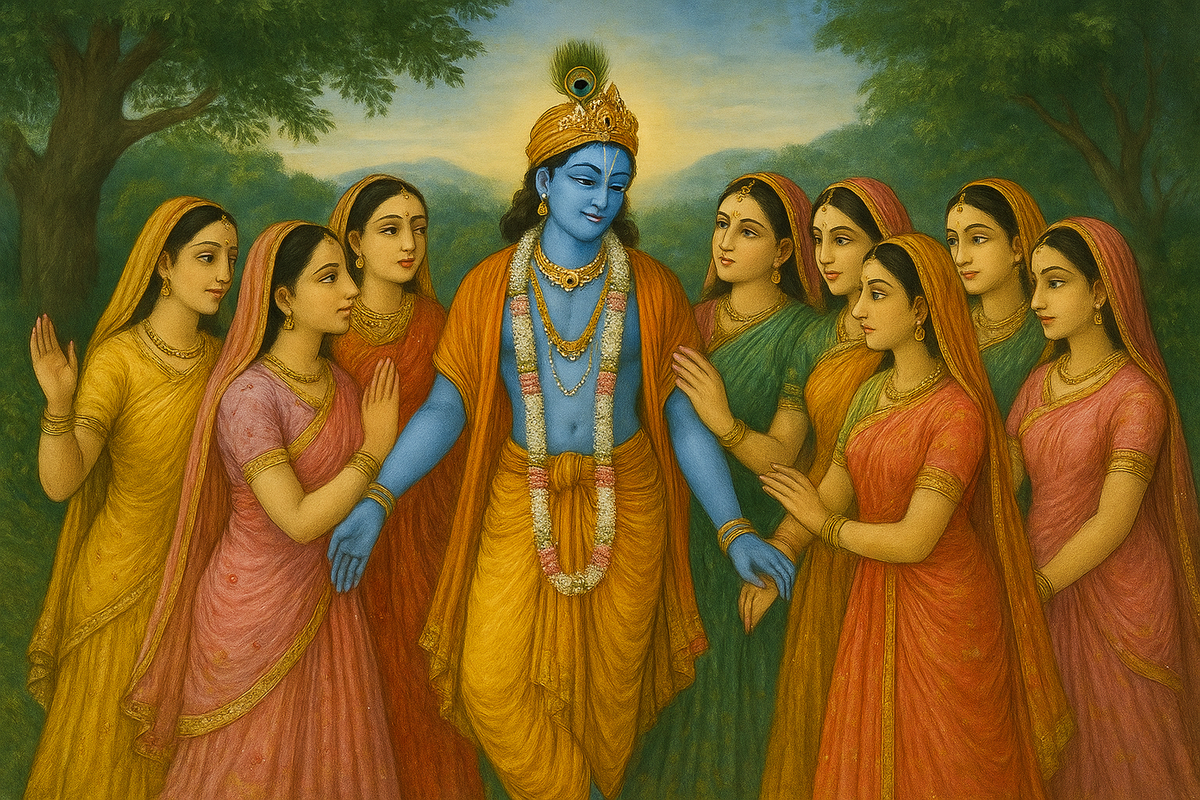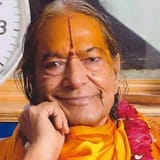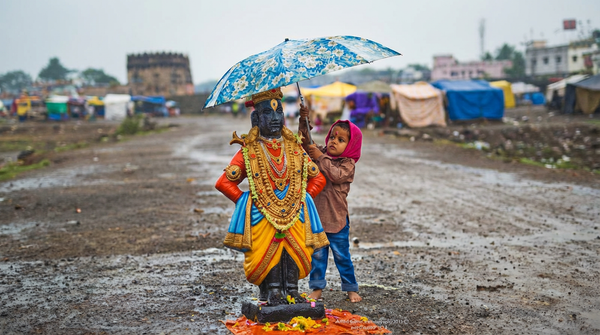Daily Devotion - Oct 04, 2025 (English)- Selfless Love

Every soul in the world is suffering, restless, unfulfilled, and incomplete. In contrast, it desires bliss, peace, and fulfillment.
What is the reason for this suffering?
Wordly desires.
vihāya kāmānya: sarvānpumāṃścarati niḥspṛha:। nirmamo nirahaṃkāra: sa śāṃtimadhigacchati॥
If you give up all worldly desires, you will immediately attain bliss, and suffering will depart forever. There is nothing else that needs to be done.
The moment you desire the world, you invite suffering. For instance, when your son is born and you celebrate with joy, you have also invited sorrow. You must cry when he dies. The greater the happiness obtained from acquiring something, the greater the suffering when it is lost.
vihāya kāmānya: sarvānpumāṃścarati niḥspṛha:। nirmamo nirahaṃkāra: sa śāṃtimadhigacchati॥
If you give up all desires, you will attain peace.
After killing Hiranyakashipu, Lord Narasimha took Prahlad in His lap and told him to ask for a boon. Prahlad thought, "Why is He telling me to "ask" for a boon? He is God, He is omniscient.
Ah, He is angry, and therefore His intellect has been destroyed.
krodhādbhavati sammoha: sammohātsmṛtivibhrama। smṛtibhraṃśād buddhināśo buddhinaśātpraṇaśyati॥
In anger, ones intellect is destroyed. That is why He is telling me to ask for a boon. Why should I ask? Am I a beggar? I am the son of God. Moreover, I am His natural servant. The duty of a servant is to give happiness to the master, not to take from Him. If you ask your master to do something, you are no longer a servant: you consider yourself the master.
yasta āśiṣa āśāste na sa bhṛtya: sa vai vaṇik।
If a servant asks something from his master, then he is not a servant but a merchant, a businessman.
The relationship between the devotee and God is not of asking but of giving. The servant exists to give happiness to the master. He does not desire his own happiness.
ahaṃ tvakāmastvadbhaktastvaṃ ca svāmyanapāśraya:
Prahlad said, "I am a servant without desires. And You are completely fulfilled - You do not need anything from me. Whatever I possess has been given by You. Even this body has been given by You. And the soul is Your servant, Your son, Your part. And if You tell me to give even this body, then this body and mind are all impure - what will You gain from them? If, even then, You insist that I ask for something, then I ask for this boon -
kāmānāṃ hṛdyasaṃrohaṃ bhavatastu vṛṇe varam॥ (Bhagavat)
O Lord! For infinite time in the future, may no desire ever arise in my heart. May this tendency to ask never come at all. Because there is no guarantee of human intellect, please ensure for all time that I may never develop a desire to ask."
indriyāṇi mana: prāṇa ātmā dharmo dhṛtirmati: । hrī: śrīsteja: smṛti: satyaṃ yasya naśyanti janmanā ॥
As soon as desire arises, great harm occurs - the senses, mind, life force, righteousness, patience, modesty, radiance, memory, and truth - are all destroyed. To fulfill that desire, a person becomes so obsessed that all his good qualities come to an end.
"However, if You command me to do something, then I will certainly fulfill it - I am a servant, I cannot refuse it."
So God said, "Alright. I am giving one instruction - rule for one Manvantar."
In other words, rule over this world for 3 crore 66 lakh 20 thousand years.
Prahlad said - "As You command."
He did not say - "No, I will go to Golok with You and remain with You." A servant does not even have the right to speak in this way.
You should also remember this principle forever - if the feeling of seva arises in you, never say "I want it this way." One who insists on his own wish becomes the master, not the servant.
The definition of love is - tatsukha sukhitvaṃ - to be happy in His happiness, to desire what He desires and to follow His instructions.
Although lust, anger, and greed are terrible enemies, anger and greed arise only from desire. When desire is fulfilled, greed arises. When it is not fulfilled, anger arises.
Therefore, desires are the root of all suffering.
But in the world, desire arises in everyone. Why did worldly desire arise in everyone?
The reason for desire is attachment. Whoever has attachment to something will also develop desire for that thing will arise. And the same desire may not arise in another person, and when the thing someone is attached to gets destroyed, that person cries, not another. This means everyone has different attachments, and therefore everyone has different desires. But all desires can be classified into five types - the desires of the five sense organs, which arise according to one's attachment.
How does attachment develop?
Attachment develops to the object in which we repeatedly contemplate happiness. And why do we contemplate something? Because we have the disease of desiring happiness. Just as the eyes have the disease of seeing and the stomach has the disease of hunger, in the same way, there is a natural disease of desiring bliss, and one's nature cannot be eliminated by contemplation or by some means.
The nature of the soul is bliss, because it is a part of the blissful God.
The soul is a part of the Supreme Soul, and the Supreme Soul is the very embodiment of bliss. Therefore, the soul has a natural desire to attain bliss. Due to ignorance, however, one identifies with the body. And since the world can be directly perceived, one develops desires for the pleasures of the body's senses. In this way, everyone develops different desires.
We can give up desires only when someone gives us bliss.
One who obtains divine love casts away even liberation. To the extent that if someone receives even one drop of the bliss of divine love, he casts away even the bliss of Brahm. One followed by seventeen zeros is called a Parārdh. Even if you multiply the bliss of Brahm by one Parārdh, it will not equal even one atom of the bliss of divine love.
But without performing sādhanā, neither can God give bliss to anyone, nor can any saint.
If you want to learn more about selfless love, surrender, and the highest example of seva to God and Guru, read :
The Ultimate Surrender – The Exemplary Biography of Sushri Dr.Vishakha Tripathi





